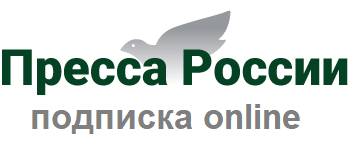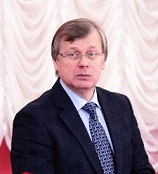Contents
OUR SPIRITUAL VALUES
Science for school
I.N.POLITOVA —
Regional seminar “Literature in the School of the XXIst Century” in Kolomna
V.A.VIKTOROVICH —
So, why do we need literature at school?
M.A.DUBOVA —
Reading the story “Zakhar Vorobyov” by I.A.Bunin: analysis of the story’s characters
E.V.SHCHERBAKOVA —
Word and music at the lesson of literature and in the after-hours activities
M.V.PANKRATOVA —
Structural and contextual models of the presenting the writers’ biographies with the help of an electronic educational presentation
A.V.KULAGIN —
Hamlet and poets of the Soviet era. The lesson of extracurricular reading
SEARCH. EXPERIENCE. SKILLS
Lessons
I.N.POLITOVA —
Conversations about morality: lessons of extracurricular reading based on the short stories by V.Soloukhin.
V—XIth grades
N.V.SARYCHEVA —
“Faces” of nature in poetry, music and painting. A lesson with the use of integrated technologies.
VIIth Grade
N.N.NEVMIRUKHO —
Russian poets about nature.
K.Balmont “Snowflake”. Vth Grade
E.V.CHEKHONINA —
Fables as a means of moral education in literature lessons
E.N.KONONOVA —
The final lesson “I.A.Krylov’s world of fables”
Modern domestic and foreign literature for teenagers and youth
M.V.ERABEK —
The story “The Cabbage Miracle” by L.Ulitskaya.
The lesson of extracurricular reading. VIth Grade
T.A.KAPYRINA, M.Y.PAYKOVA —
Lesson-workshop based on the story “Tim and Dan, or The Secret of the Broken Knee” by I.Krayeva.
VIth Grade
M.I.BONDARENKO —
S.Westerfeld. “Uglies”.
XIth Grade
Virtual tour around the literary significant places of Kolomna
S.N.MIRONENKO —
Kolomna through the eyes of Boris Pilnyak: literary local lore
Abstracts and keywords
OUR SPIRITUAL VALUES
Science for school
I.N.POLITOVA —
Regional seminar “Literature in the School of the XXIst Century” in Kolomna
Abstract. The author tells about a two-day seminar for teachers in Kolomna, which raised the problem of modern literature teaching in the school.
Keywords: content of the reports, relevance of the raised issues, ways to address current methodological problems.
V.A.VIKTOROVICH —
So, why do we need literature at school?
Abstract. The author suggests to think about the meaning of the teaching literature in the modern school. It should be obvious that the practices of both ideological and postmodern “conquest” of literature lead to the “death of the author”. Only dialogue with the author can save the subject of literature itself, which gives the skills of understanding and co-creation. Examples are given of the possibilities of such dialogue in modern conditions.
Keywords: literature in the school, crisis of teaching, “death of the author”, dialogue with the author.
M.A.DUBOVA —
Reading the story “Zakhar Vorobyov” by I.A.Bunin: analysis of the story’s characters
Abstract. The article presents the experience of reading the I.A.Bunin’s story “Zakhar Vorobyov”. The story’s protagonist is in the center of the author’s attention with a comprehensive analysis of the main character.
Keywords: complex analysis, main character, methods of creating the character, perception of the world, author’s attitude.
E.V.SHCHERBAKOVA —
Word and music at the lesson of literature and in the after-hours activities
Abstract. The article deals with the correlation between the written word and music in the historical perspective on the material of Russian art of the XIX—XXth centuries. The musical component in the creative portraits of Russian writers of the XIX century is analyzed.
Keywords: music, literature, poetry, literature lesson, extracurricular activities, theater, folk song.
M.V.PANKRATOVA —
Structural and contextual models of the presenting the writers’ biographies with the help of an electronic educational presentation
Abstract. The article is devoted to the structural and content models of the writers biographies in a literature lesson with the help of an electronic educational presentation, as well as methods and techniques for increasing students’ motivation to study the subject.
Keywords: biography, electronic educational presentation, motivation, intersubject communications.
A.V.KULAGIN —
Hamlet and poets of the Soviet era. The lesson of extracurricular reading
Abstract. The article is devoted to the lesson about “Hamlet and poets of the Soviet era”. The poetry by A.Mezhirov, B.Slutsky, A.Kushner and V.Vysotsky is presented.
Keywords: “eternal” images, Hamlet, tradition, rethinking, Mezhirov, Slutsky, Kushner, Vysotsky.
SEARCH. EXPERIENCE. SKILLS
Lessons
I.N.POLITOVA —
Conversations about morality: lessons of extracurricular reading based on the short stories by V.Soloukhin.
V—XIth grades
Abstract. The article raises the issue of moral education in school suggesting the short stories by Vladimir Soloukhin at the lessons of extracurricular reading and reflecting on the moral basis of the actions of its heroes.
Keywords: extracurricular reading, short stories, V.Soloukhin, morality, moral choice, education of morality.
N.V.SARYCHEVA —
“Faces” of nature in poetry, music and painting. A lesson with the use of integrated technologies.
VIIth Grade
Abstract. The integrated lesson of literature and music is conducted as a part of the study of “landscape lyrics” by Tyutchev, Fet, Balmont, Yesenin and Maikov using music by Tchaikovsky, Schumann and Greve-Sobolevskaya. Students learn the skills of the primary analysis of the poetic text, determine the role of the expressive means of the language, compare the lyrical and musical works, learn the expressive reading with musical accompaniment, compose the syncline, and describe the music.
Keywords: landscape sketches in poetry, music and painting, visual means of language and music, musical work, poem analysis, versification, rhyme.
N.N.NEVMIRUKHO —
Russian poets about nature.
K.Balmont “Snowflake”. Vth Grade
Abstract. The article presents a lesson in which students learn how to “deep” read the poetic text, analyze it, see the means of artistic expressiveness and express one’s thoughts and feelings.
Keywords: poems about nature, text analysis, epithet, metaphor, personification.
E.V.CHEKHONINA —
Fables as a means of moral education in literature lessons
Abstract. The author shows the possibilities of a fable for the moral education of teenagers.
Keywords: fable, educational role of reading, allegory, accuracy of language and expressiveness of the image, creativity of teenagers.
E.N.KONONOVA —
The final lesson “I.A.Krylov’s world of fables”
Abstract. The final lesson on the study I.A.Krylov’s works expands the knowledge about the creativity of the fabulist, reveals the ability to expressively read the text in order to understand the morality of the fable and its meaning.
Keywords: fable, morality, aphorism, Aesopian language, allegory.
Modern domestic and foreign literature for teenagers and youth
M.V.ERABEK —
The story “The Cabbage Miracle” by L.Ulitskaya.
The lesson of extracurricular reading. VIth Grade
Abstract. The lesson is devoted to the analysis of L.Ulitskaya’s story about how the characters who are strangers to each other go through the life events and become close and dear to each other.
Keywords: L.Ulitskaya, story, war, meaning of the title, indifference and sympathy, family.
T.A.KAPYRINA, M.Y.PAYKOVA —
Lesson-workshop based on the story “Tim and Dan, or The Secret of the Broken Knee” by I.Krayeva.
VIth Grade
Abstract. This lesson of extracurricular reading helps to broaden the students’ horizons in the field of modern national adolescent fiction literature.
Keywords: domestic literature, extracurricular reading, analysis of artistic text, means of expressiveness
M.I.BONDARENKO —
S.Westerfeld. “Uglies”.
XIth Grade
Abstract. The article is devoted to the S.Westerfeld novel “Uglies” and the possibility of studying it in the high school. Being an anti-utopia, this text is relevant with its ethical issues. The image of the world of the future, inhabited by equally beautiful people, makes teenagers think about the person’s personality and individuality.
Keywords: “Uglies”, anti-utopia, standardization, “beauty surgery”.
Virtual tour around the literary significant places of Kolomna
S.N.MIRONENKO —
Kolomna through the eyes of Boris Pilnyak: literary local lore
Abstract. The article shows the content and organization of virtual tour around the literary significant places of Kolomna which were described by Boris Pilnyak.
Keywords: Pilnyak, Kolomna, local lore, tour, literature









